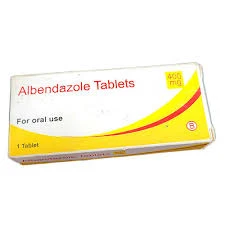- Afrikaans
- Albanian
- Amharic
- Arabic
- Armenian
- Azerbaijani
- Basque
- Belarusian
- Bengali
- Bosnian
- Bulgarian
- Catalan
- Cebuano
- Corsican
- Croatian
- Czech
- Danish
- Dutch
- English
- Esperanto
- Estonian
- Finnish
- French
- Frisian
- Galician
- Georgian
- German
- Greek
- Gujarati
- Haitian Creole
- hausa
- hawaiian
- Hebrew
- Hindi
- Miao
- Hungarian
- Icelandic
- igbo
- Indonesian
- irish
- Italian
- Japanese
- Javanese
- Kannada
- kazakh
- Khmer
- Rwandese
- Korean
- Kurdish
- Kyrgyz
- Lao
- Latin
- Latvian
- Lithuanian
- Luxembourgish
- Macedonian
- Malgashi
- Malay
- Malayalam
- Maltese
- Maori
- Marathi
- Mongolian
- Myanmar
- Nepali
- Norwegian
- Norwegian
- Occitan
- Pashto
- Persian
- Polish
- Portuguese
- Punjabi
- Romanian
- Russian
- Samoan
- Scottish Gaelic
- Serbian
- Sesotho
- Shona
- Sindhi
- Sinhala
- Slovak
- Slovenian
- Somali
- Spanish
- Sundanese
- Swahili
- Swedish
- Tagalog
- Tajik
- Tamil
- Tatar
- Telugu
- Thai
- Turkish
- Turkmen
- Ukrainian
- Urdu
- Uighur
- Uzbek
- Vietnamese
- Welsh
- Bantu
- Yiddish
- Yoruba
- Zulu
jan . 01, 2025 08:21 Back to list
Effective Antiparasitic Medications for Canine Health and Well-Being
Antiparasitic Drugs for Dogs A Comprehensive Guide
Parasites can pose significant health threats to dogs, affecting not only their well-being but also that of their owners. Many pet owners may not be fully aware of the importance of antiparasitic treatments or the different types available. This article aims to provide an overview of the various antiparasitic drugs for dogs, their uses, and considerations for pet owners.
Types of Parasites Affecting Dogs
Before discussing antiparasitic drugs, it is essential to understand the types of parasites that commonly afflict dogs. These can be divided into two main categories internal and external parasites.
1. Internal Parasites These include intestinal worms such as roundworms, hookworms, tapeworms, and whipworms. Dogs can contract these parasites from contaminated food, water, or by ingesting infected animals.
2. External Parasites These include fleas, ticks, mites, and lice. They can cause skin irritation, allergic reactions, and transmit diseases to both dogs and humans.
Antiparasitic Medications
With various parasites posing different threats, a range of antiparasitic medications is available to help prevent and treat these infections. Here are some commonly used antiparasitic drugs
1. Fenbendazole This broad-spectrum anthelmintic is effective against several types of intestinal parasites, including hookworms and roundworms. Fenbendazole is often administered as a daily treatment for three days and is available in various formulations.
2. Praziquantel This medication is specifically effective against tapeworms. It works by causing paralysis in the parasite, allowing it to be expelled from the dog's system. Praziquantel is generally given as a single dose.
3. Milbemycin Oxime This drug treats a variety of intestinal worms and also offers heartworm prevention. It is usually given monthly as a preventive measure, which makes it particularly useful for pet owners in areas where heartworm is prevalent.
antiparasitic drugs for dogs

4. Ivermectin Commonly used to prevent heartworm disease, ivermectin also treats various external parasites such as mites. While it is generally safe, pet owners should exercise caution, especially with certain breeds like Collies, which can have sensitivities to ivermectin.
5. Selamectin This topical treatment not only prevents heartworm but also combats fleas, ticks, and certain types of mites. It is easy to apply and highly effective, making it a popular choice among pet owners.
6. Fipronil Often found in flea and tick topicals, fipronil works by disrupting the nervous system of these parasites. It offers long-lasting protection and is well-tolerated by most dogs.
Choosing the Right Antiparasitic Drug
When selecting an antiparasitic drug for your dog, it is crucial to consider several factors
1. Veterinarian Consultation Always consult with your veterinarian before starting any antiparasitic treatment. They can recommend the most suitable medication based on your dog’s age, weight, and specific health needs.
2. Regular Preventive Measures Prevention is often more effective than treatment. Establishing a routine for administering preventive antiparasitic medications can help keep your dog safe from potential infestations.
3. Monitoring and Side Effects After administering antiparasitic drugs, monitor your dog for any adverse reactions. Common side effects include vomiting, diarrhea, and lethargy. If you notice severe symptoms or persistent issues, contact your veterinarian immediately.
4. Lifestyle Considerations Consider your dog's lifestyle when selecting antiparasitic treatments. Dogs that frequently socialize with other animals or spend time outdoors may require more rigorous preventive measures.
Conclusion
Antiparasitic drugs play a vital role in maintaining the health of dogs and protecting them from the numerous parasites that can adversely affect their well-being. By understanding the types of parasites, the range of available medications, and the importance of preventive care, pet owners can make informed decisions to safeguard their furry companions. Remember, regular veterinary consultations and adherence to preventive treatments are key to a healthy and happy dog, free from the dangers posed by parasites.
-
Guide to Oxytetracycline Injection
NewsMar.27,2025
-
Guide to Colistin Sulphate
NewsMar.27,2025
-
Gentamicin Sulfate: Uses, Price, And Key Information
NewsMar.27,2025
-
Enrofloxacin Injection: Uses, Price, And Supplier Information
NewsMar.27,2025
-
Dexamethasone Sodium Phosphate Injection: Uses, Price, And Key Information
NewsMar.27,2025
-
Albendazole Tablet: Uses, Dosage, Cost, And Key Information
NewsMar.27,2025













